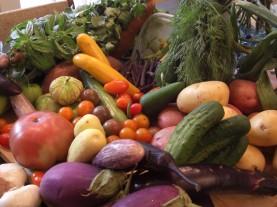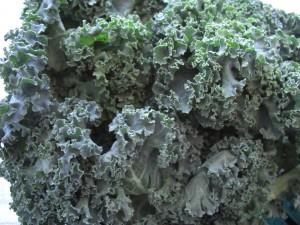At a recent wine event hosted by yours truly, which examined today’s organic wine paradigm, I discovered something I would never have predicted about our 20 participants: When asked how many of them were familiar with the “Dirty Dozen” in regard to fruits and vegetables, only 2 hands went up. My assistant Michael and I looked at each other, and decided that maybe it was time to get the word out, particularly since it relates to everyone’s health and wellness. Welcome to the fulfillment of that thought.
The List, Not the War Film
Stated as simply as possible, the Dirty Dozen are the twelve common fruits and vegetables that, when not grown organically, carry the heaviest pesticide load with them to the market, as researched and tested by the Environmental Working Group. The updated 2014 list includes 2 new additions, redefining this dozen as 14. Get familiar with the list, which ranks the items in descending order of pesticide load:
Apples
Strawberries
Grapes (including wine)
Celery
Peaches
Spinach
Sweet Bell Peppers
Imported Nectarines
Cucumbers
Cherry Tomatoes
Imported Snap Peas
Potatoes
Plus 2, for excessive organophosphates....a toxin:
Hot Peppers and Domestic Blueberries
Of course I don’t have to tell you that consuming chemical pesticides is a threat to our health, even more so during fetal development and childhood. If putting your family’s health first is part of your mindset, and buying organic fits your budget, it’s essential that you choose carefully from whom you purchase any of these Dirty Dozen goodies. The only other realistic option is to grow them yourself.
Alternative Measures
As is evident, organic produce can be expensive, often exceeding even a middle-class budget. But there is hope for the organically conscious! If you’re able to resist apples, peaches and cherry tomatoes, get to know the “Clean Fifteen”. This is the official list of fruits and vegetables with the lowest amount of detectable pesticides, even when farmed commercially. Stick with these, and you can avoid spending the extra moolah on organic:
Avocados
Sweet Corn
Pineapples
Cabbage
Frozen Sweet Peas
Onions
Asparagus
Mangoes
Papayas
Kiwi
Eggplant
Grapefruit
Domestic Cantaloupe
Cauliflower
Sweet Potatoes
Under The Radar
Green markets can be a great way to save on organic Dirty Dozen produce. Often, green market goods are not labeled as organic, but in fact are from sustainable farms and are as pure as organic. Speak to each vendor individually to find out which ones are practicing minimalist farming. Then, make your move.



